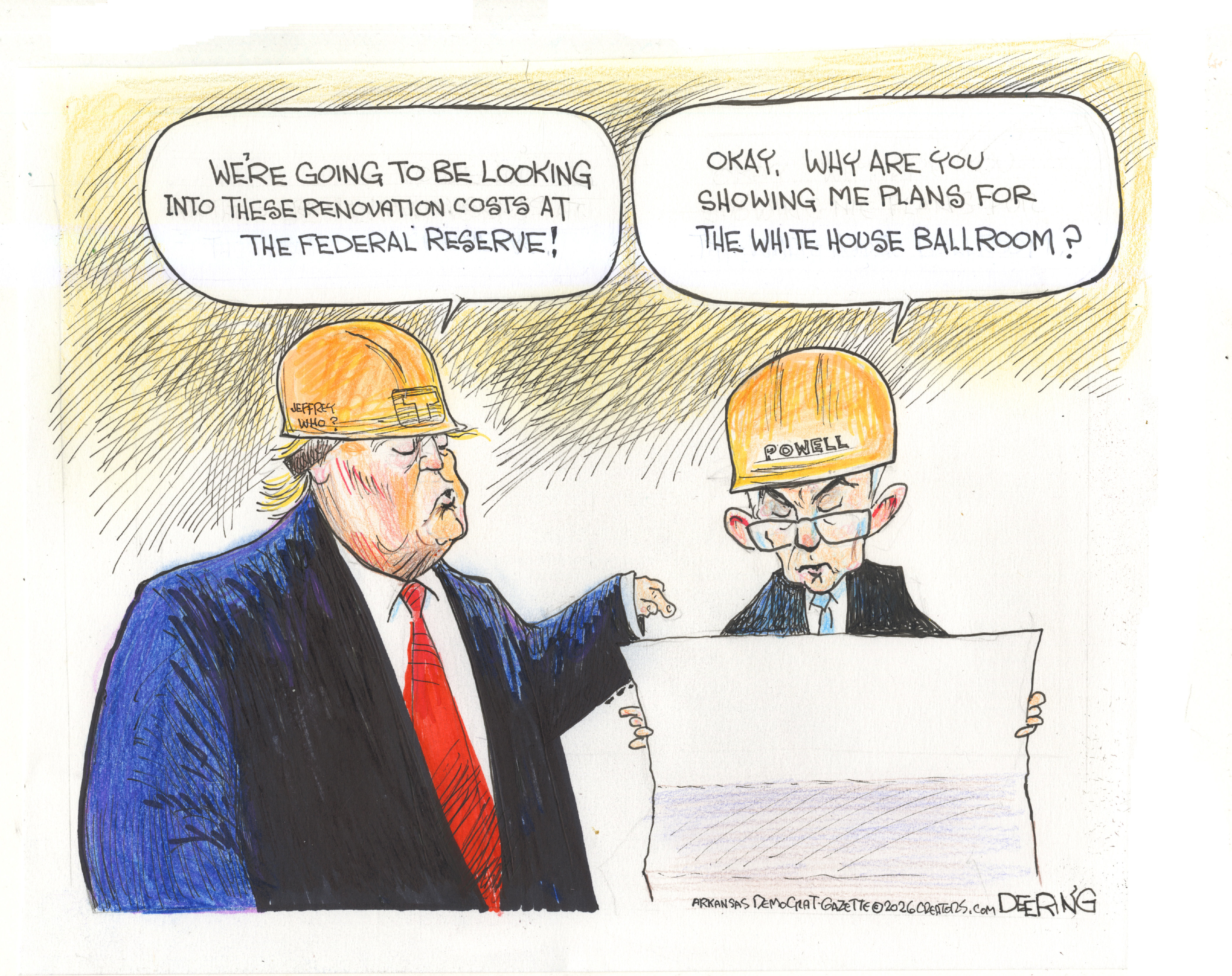Republicans' transparently preposterous new pretext to fire Mueller
Don't believe Sean Hannity carping about "bias"


One of the more alarming outbursts of authoritarianism from American conservatives has boiled up over Special Counsel Robert Mueller's investigation into connections between President Trump and Russia. It came out that FBI lawyer Lisa Page and agent Peter Strozk (who were having an affair) had exchanged anti-Trump texts, leading to an extremely predictable frenzy of denunciation and calls for a partisan purge of the FBI. The supposed justification is that the FBI is full of Trump-hating liberals, who aren't giving the president a fair shake.
Over the weekend, lawyers for Trump criticized Mueller's team for the way it obtained emails that were sent between Trump transition officials. Despite Trump's claim that he is not planning to fire Mueller, the outrage on behalf of Trump allies is, very obviously, a pretext to shut down the investigation. But it's worth digging into the bankrupt norm of objectivity that Republicans are attempting to leverage to shut down an investigation into Trump's possible collaboration with a hostile foreign power to win the election.
This desire for objectivity — to avoid the appearance of bias in certain contexts — is very common among professional institutions. For example, The New York Times has been attacked by conservatives (and especially Trump), because of the pretty obvious fact that, at a rough guess, 97 percent of their reporters and editors are upper-middle-class liberals who don't particularly like the president.
The Week
Escape your echo chamber. Get the facts behind the news, plus analysis from multiple perspectives.

Sign up for The Week's Free Newsletters
From our morning news briefing to a weekly Good News Newsletter, get the best of The Week delivered directly to your inbox.
From our morning news briefing to a weekly Good News Newsletter, get the best of The Week delivered directly to your inbox.
But instead of being honest about their employees and where they are coming from, the Times opted to keep its readers in the dark with new rules mandating writers suppress their political opinions on social media. The rules state that reporters "must not express partisan opinions, promote political views, endorse candidates, make offensive comments, or do anything else that undercuts the Times’ journalistic reputation." It's ethically bankrupt and illogical — and as journalism professor Jay Rosen argues, likely driven in reality by a need to preserve access to Trump, not any ethical standard. But the major practical effect was to paint a big "Kick Me, Mike Cernovich" sign on the backs of every one of their reporters, which was promptly exploited.
Journalism is different from law enforcement, of course. One does not need to disclose the political affiliations of people who aren't publishing for the public. But like most Americans and all journalists, the average FBI agent certainly has strong political beliefs.
Indeed, one thing that makes this fake controversy so preposterous is that FBI agents are notoriously right-wing. (This is true of most law enforcement; just look at a police union.) Before the election, it was widely discussed that the FBI was stuffed with Trump sympathizers and Clinton haters. The latter especially were reportedly part of why then-FBI Director James Comey released his letter announcing the re-opening of the investigation into Hillary Clinton in late October 2016 — thus helping to throw the election to Trump. Rudy Giuliani even bragged on Fox News that he was getting inside scoops about how angry FBI agents were at the Democratic candidate.
Even the content of the texts did not so much as hint at any actual impropriety (like suggesting the investigation was a good way to get Trump). It was pure political opinion: that Trump is a "loathsome human," that Clinton should win, that Bernie Sanders is an "idiot like Trump," and so forth.
A free daily email with the biggest news stories of the day – and the best features from TheWeek.com
Of course, it was pretty unwise for Strozk and Page to exchange those texts, especially on government phones. But as Josh Marshall points out, federal law protects government employees' right to political opinions. And given that the Department of Justice issued a statement saying that the release of the texts to media outlets was not authorized, the leaks could have quite obviously come from right-wingers in the agency trying to discredit the investigation or appease Trump.
Now, there's nothing wrong with maintaining a professional, buttoned-down norm on investigations. It's reasonable to move people off the investigation if they goof and stir up some controversy. But it's critical for everyone involved to realize that catering to this nonsense idea of objectivity is only going to enable Republican abuse and authoritarianism. When Republican hacks like Fox News' Sean Hannity accuse Mueller — who was appointed to run the FBI by George W. Bush in 2001 — and his investigation of being "corrupt, abusively biased, and political," what he's actually saying is "any effort that might uncover crimes committed by President Trump should be stopped immediately." No amount of self-discipline or self-policing is going to stop him attacking Trump's enemies. If no pretexts can be found, he'll make some up.
Instead, remember that investigations proceed by evidence, argument, and sworn testimony. Mueller's effort will produce results (that is, in addition to guilty pleas from George Papadopoulos and Michael Flynn, and the indictment of Paul Manafort he has already gotten) insofar as he can produce a solid case for them. Worrying that non-reactionary political opinions among Mueller's team will discredit the investigation — as Times-reading liberals are often tempted to do — is to fall for a Republican con.
Ryan Cooper is a national correspondent at TheWeek.com. His work has appeared in the Washington Monthly, The New Republic, and the Washington Post.
-
 Political cartoons for January 17
Political cartoons for January 17Cartoons Saturday’s political cartoons include hard hats, compliance, and more
-
 Ultimate pasta alla Norma
Ultimate pasta alla NormaThe Week Recommends White miso and eggplant enrich the flavour of this classic pasta dish
-
 Death in Minneapolis: a shooting dividing the US
Death in Minneapolis: a shooting dividing the USIn the Spotlight Federal response to Renee Good’s shooting suggest priority is ‘vilifying Trump’s perceived enemies rather than informing the public’
-
 The billionaires’ wealth tax: a catastrophe for California?
The billionaires’ wealth tax: a catastrophe for California?Talking Point Peter Thiel and Larry Page preparing to change state residency
-
 Bari Weiss’ ‘60 Minutes’ scandal is about more than one report
Bari Weiss’ ‘60 Minutes’ scandal is about more than one reportIN THE SPOTLIGHT By blocking an approved segment on a controversial prison holding US deportees in El Salvador, the editor-in-chief of CBS News has become the main story
-
 Has Zohran Mamdani shown the Democrats how to win again?
Has Zohran Mamdani shown the Democrats how to win again?Today’s Big Question New York City mayoral election touted as victory for left-wing populists but moderate centrist wins elsewhere present more complex path for Democratic Party
-
 Millions turn out for anti-Trump ‘No Kings’ rallies
Millions turn out for anti-Trump ‘No Kings’ ralliesSpeed Read An estimated 7 million people participated, 2 million more than at the first ‘No Kings’ protest in June
-
 Ghislaine Maxwell: angling for a Trump pardon
Ghislaine Maxwell: angling for a Trump pardonTalking Point Convicted sex trafficker's testimony could shed new light on president's links to Jeffrey Epstein
-
 The last words and final moments of 40 presidents
The last words and final moments of 40 presidentsThe Explainer Some are eloquent quotes worthy of the holders of the highest office in the nation, and others... aren't
-
 The JFK files: the truth at last?
The JFK files: the truth at last?In The Spotlight More than 64,000 previously classified documents relating the 1963 assassination of John F. Kennedy have been released by the Trump administration
-
 'Seriously, not literally': how should the world take Donald Trump?
'Seriously, not literally': how should the world take Donald Trump?Today's big question White House rhetoric and reality look likely to become increasingly blurred
